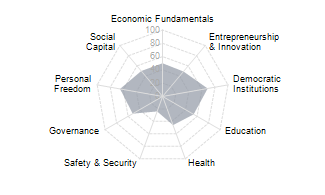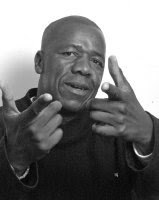
As we celebrate the New Year in South Africa, we are very excited about the 2010 World Cup, and the opportunity to welcome new visitors to our country. The stadiums are ready and all our international visitors are in for a treat!
Mr Sepp Blatter – apparently the head of Fifa – has been critical of South Africans for not being enthusiastic enough. I cannot say much about Mr Blatter, but I am sure he is an honourable man. He has been feted and wined by our Ministers and other officials whenever he comes here – I have seen it in the media – so he must be honourable.
I looked him up on Google – this man who, while no doubt honourable, has the nerve to tell us to be more enthusiastic about the World Cup.
I was interested to read about his nephew getting a very lucrative world cup contract (in the news just 2 days ago).
And apparently there is a journalist called Andrew Jennings, who has reported extensively on what he sees as the corrupt way in which the Hon Mr Blatter has governed world football for many years.
I am somehow reminded of the great speech by Mark Anthony:
Friends, Romans, countrymen, lend me your ears;
I come to bury Caesar, not to praise him;
The evil that men do lives after them,
The good is oft interred with their bones,
So let it be with Caesar ... The noble Brutus
Hath told you Caesar was ambitious:
If it were so, it was a grievous fault,
And grievously hath Caesar answered it ...
Here, under leave of Brutus and the rest,
(For Brutus is an honourable man;
So are they all; all honourable men)
Come I to speak in Caesar's funeral ...
He was my friend, faithful and just to me:
But Brutus says he was ambitious;
And Brutus is an honourable man….
He hath brought many captives home to Rome,
Whose ransoms did the general coffers fill:
Did this in Caesar seem ambitious?
When that the poor have cried, Caesar hath wept:
Ambition should be made of sterner stuff:
Yet Brutus says he was ambitious;
And Brutus is an honourable man.
You all did see that on the Lupercal
I thrice presented him a kingly crown,
Which he did thrice refuse: was this ambition?
Yet Brutus says he was ambitious;
And, sure, he is an honourable man.
I speak not to disprove what Brutus spoke,
But here I am to speak what I do know.
You all did love him once, not without cause:
What cause withholds you then to mourn for him?
O judgement! thou art fled to brutish beasts,
And men have lost their reason…. Bear with me;
My heart is in the coffin there with Caesar,
And I must pause till it come back to me.
The Right Honourable Blatter has something still to learn if he thinks he is the King of South Africa, even for only a year. Whoever we as South Africans are, we are not the kind of people to come out on to the streets and cheer just because some Fifa official tells us to – even if he is very honourable. We will blow our vuvuzelas when we are ready.


















